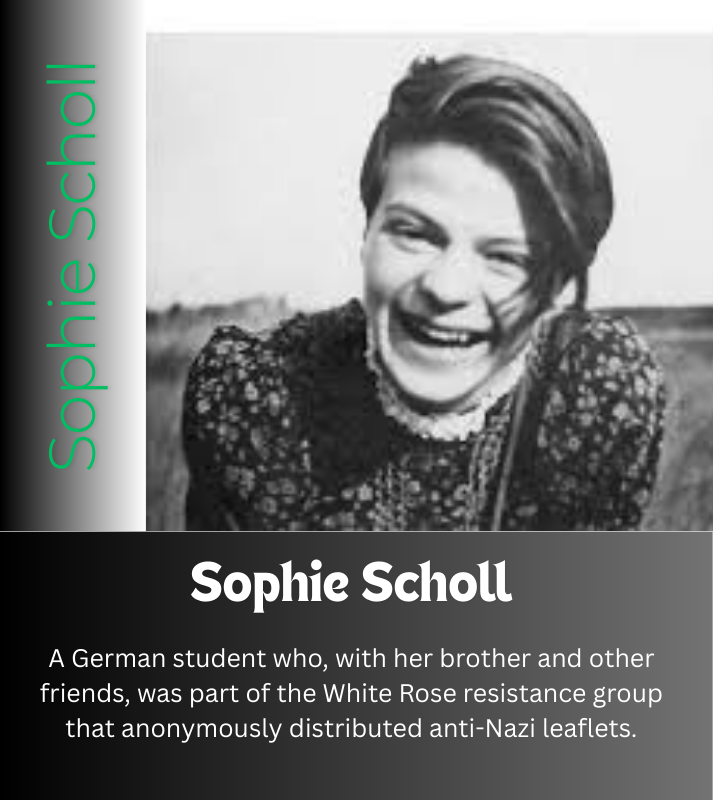Sophie Scholl
A Beacon of Resistance


Sophie Scholl was a remarkable German student and a pivotal figure in the White Rose, a non-violent resistance group that courageously stood against the Nazi regime. Her life, though tragically short, remains a powerful testament to the human spirit's capacity for moral conviction and bravery in the face of tyranny.
Early Life and Shifting Beliefs
Born on May 9, 1921, in Forchtenberg, Germany, Sophie was raised in a liberal Christian family that fostered independent thought. Initially, like many of her peers, she was swept up in the patriotic fervor of the Nazi youth movements. She joined the League of German Girls (Bund Deutscher Mädel), a compulsory organization for young women. However, she quickly grew disillusioned with the regime's ideology, witnessing firsthand its stifling of creativity and its promotion of a narrow, hateful worldview. This shift was also heavily influenced by her father's staunch anti-Nazi stance and her brother's growing political consciousness.
The White Rose
In 1942, while studying at the University of Munich, Sophie joined her brother, Hans Scholl, and a small group of friends to form the White Rose. The group's primary form of resistance was the anonymous distribution of leaflets. These pamphlets, written by Hans and his friend Alexander Schmorell, exposed the atrocities of the Nazi regime and called for passive resistance from the German people.
Sophie Scholl: A Beacon of Resistance
They were a direct challenge to the silence and complicity that had allowed Nazism to flourish. Sophie played a crucial role, using her discretion and bravery to help distribute the leaflets across Munich. The group's actions were incredibly dangerous, as any form of dissent was met with swift and brutal punishment by the Gestapo, the secret police.
Capture, Trial, and Legacy
The group's bold actions came to an end on February 18, 1943. Sophie and Hans were caught by a janitor while distributing the sixth leaflet in the atrium of the University of Munich. They were handed over to the Gestapo and, after a series of intense interrogations, confessed to their actions to protect other members of the group. Just four days later, on February 22, 1943, Sophie, Hans, and Christoph Probst were put on trial for high treason. The trial was a sham, with Judge Roland Freisler of the People's Court presiding. Freisler, a fanatical Nazi, quickly sentenced all three to death by guillotine. Sophie's last words were a defiant act of conviction: "The sun is still shining," she said, a final testament to her hope for a future free from oppression. The legacy of Sophie Scholl and the White Rose continues to inspire people around the world. Their courage reminds us that even in the darkest of times, the individual's voice and moral compass can be a powerful force for change. The White Rose stands as a shining example of non-violent resistance and the importance of standing up for justice, even when the odds seem insurmountable.
Discover the extraordinary and unique stories.
Inspire
© 2025. All rights reserved.
